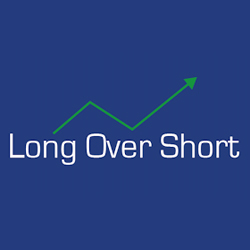It was a bumpy week for the financial markets. First thing first, the latest data shows that the coronavirus pandemic is far from over. This time an outbreak occurred in the southeastern province of Fujian, China. According to local authorities, 43 transmitted cases were found since Friday and put 32 asymptomatic carriers under medical observation.

As a result, Fujian authorities have ordered mass Covid-19 testing for students and teachers in the province to be completed within a week. The city of Xiamen has closed off two districts and a hospital after identifying coronavirus patients. Likewise, they have recommended to residents not to leave the city if it is not essential and transport connections have been suspended. The new lockdown could negatively affect both the region’s trade and the economic growth of the entire country. If things take a sharp turn for the worse, new bottlenecks can appear, thus causing another spike in the prices of certain goods.
Additionally, markets have been affected by the uncertainty in Guinea after the military coup removed the country´s ex-leader, Alpha Conde. The problem is that Guinea is the world’s biggest producer of bauxite, a mineral used to make aluminum, thus it shouldn’t be a surprise that an unexpected replacement of the President has pushed the price of the metal to new record highs. If the situation continues to deteriorate, ultimately causing mine closures, the world could face serious problems.
On the geopolitical front, the biggest surprise was the resignation of Japanese Prime Minister Yoshihide Suga. Ge will not even re-nominate himself as the leader of the Liberal Democratic Party (LPD). He has chosen to step aside before the next election in the fall. How did the markets react to the news of Suga’s departure? Curiously, in a positive way, the Tokyo stock market hitting its 30-year high.
Among the possible reasons for this rise, we can highlight investors’ hope for greater political stability. Also that the future prime minister will promote another fiscal stimulus package. Along with this, we find it necessary to add that the valuations of the Japanese market currently seem cheap compared to other developed markets. Will there be political uncertainty? In the short term probably yes, but the good news is that the LPD (Abe and Suga’s party) maintains a high level of control.
Will we see the approval of the other stimulus package by the new government? Even though the Japanese government’s indebtedness is at record levels this year, reaching 266% of GDP and the public deficit will stand at 14%, according to the IMF, we do not rule out that the BoJ introduces another big Dovish shock.
Talking about the stimulus, the European Central Bank is preparing for reducing the quantitative easing program. To be more precise, last week a reduction in the pace of purchases was announced under its pandemic program (PEPP) due to the improvement in the economy and the rise in inflation. Despite the fact the exact figures are not yet known, the market expects that the PEPP will seek a return to the number of net purchases that were recorded in the summer of 2020 (between 60,000 and 70,000 million euros).
On the other hand, the European Central Bank has kept the price of money at historic lows. In such a way that the main interest rate will remain at 0%, the rate on the deposit facility at -0.5%, and the credit facility at 0.25%. Along with this, Christine Lagarde said that the reduction in the rate of purchases under her program against the pandemic is not the beginning of tapering but a simple “calibration” within a framework and concrete rules such as those of the PEPP. Finally, Lagarde has indicated that “the global spread of the Delta variant could even delay the total reopening of the economy.”
Speaking of the outlook, the ECB has revised the fall in GDP in 2020, which was 6.5% compared to the 6.8% it announced in 2020. Growth estimates for 2021 go from 5% from the 4.6% forecast in June, while it reduces it to 4.6% for 2023 from 4.7% and leaves it the same for 2023 at 2.1%. In the case of inflation in the euro area, the ECB estimates that this year it will close at 2.2% compared to the 1.9% estimated in June 2021, raising it to 1.7% from 1.5% for 2022 and it also revises it upwards for 2023 to 1.5%.

 Hot Features
Hot Features













